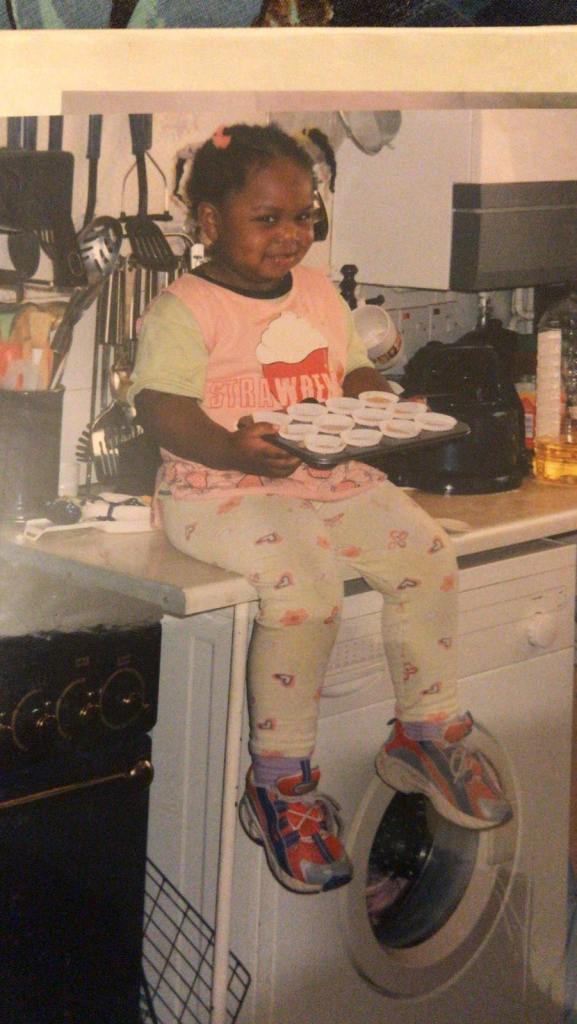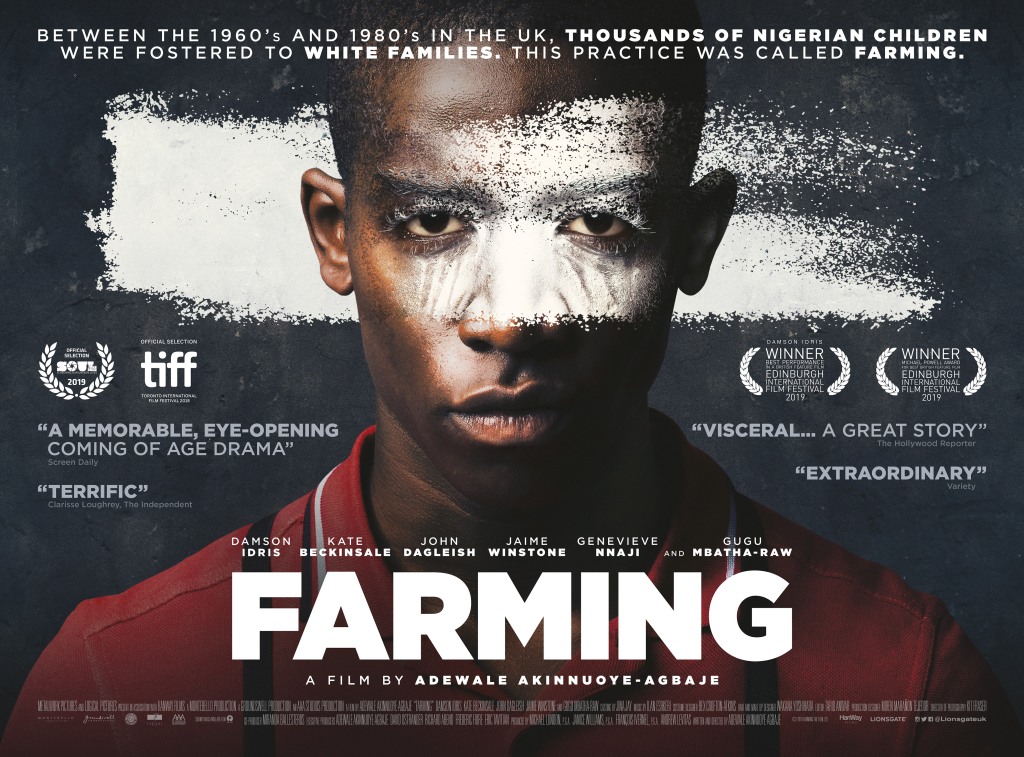Last night I had the opportunity to attend a pre-screening of Adewale Akinnuoye-Agbaje’s brand new film Farming. I am left with a lot of emotions which are a struggle to fully articulate and encapsulate within a film review. Lets look at what farming is – it’s not an agricultural practice, but a term given to a practice which has been predominantly popular among Nigerians in the UK during the 60’s and 80’s. And to be brutally honest, it still happens today. Nigerian parents would foster their babies and children to white working class families.
Why? There are multiple reasons as to why and each case and story is different, for some it may be because the parents are working night and day to try and make a living and provide a better future for their children. In relation to the film, in Enitan’s case his parents were international university students who sought care for their children until they could finish their studies. As someone who has personally experienced farming first hand, one thing I can say is that our parents love us, they really really love us and they have only done what they thought was best. To be a Nigerian immigrant on foreign soil during the second half of the 20th century, is not something I can imagine. It was not easy for black people in the UK. Racism was blatant, it was right in your face and Enitan does not hold back on the brutality of the attacks and abuse that he faced being black in Britain. No one speaks about the Black British experience, and this story is an important part of British Nigerian history that deserves to be recognised.
The film explores many important issues which are still prevalent today such as race, racism, identity, insecurity, self hatred, love, violence and growth. Enitan’s story is a testament of that and is one of many. In honour of the film being released on 11th October 2019, I would like to share a few words about my own farming experience. Also if you have also experienced farming please do get in touch I would love to hear your stories!
I spent my early years living in Portsmouth with my white nanny Isobel and her husband. They had no children of their own, at least to my knowledge, but it was a lovely home. I was blessed and fortunate to have had a pleasant experience, therefore discovering this story brought quite a shock to me, I did not know that farming was a phenomenon, I just assumed that I had a white nanny and I was just a one off case. This story is extremely powerful because it has shed light on a community and a history that most people have little to no knowledge about.
In the house that I grew up in, there were two other children, siblings. One called Harriet, the older sibling, and the younger one Gabrielle. I don’t know much about them apart from their names. I’d never seen their mother once while living with them, however my dad would mention her briefly. (If for some reason you find this post and you are reading this hit me up lets connect and network.)
Isobel’s household brought me my very first introduction to music, art, food and culture. If it wasn’t dancing to the spice girls or Britney Spears with Harriet it was sitting in the living room listening to Robbie Williams with Isobel. I won’t bore you with the details of my childhood, but it was nice and I am eternally grateful for the love that I received within Isobel’s household and all of her friends. Moving back to live with my parents in London provided a culture shift. I went from living in a 3 or 4 bed house in the country with a nice garden to living in a small 1 bedroom flat in London. I had been accustomed to theBritish way of life and my Nigerian heritage hit me like a ton of bricks. I have struggled with my identity while growing up. Being first generation and black in the UK, I knew I was different from the Caribbean and Caucasian kids at school. It was the way my parents spoke, the clothes I was forced to wear and even the food they would give me to bring into school.
(LOL there was this one time at school when we had to bring in ingredients to make our own sandwiches for a healthy eating scheme. I had specifically asked my mum to give me a can of tuna and a can of sweetcorn because I wanted to make a Tuna and Sweetcorn sandwich. Instead my mum gave me a can or corned beef, I really did not want to take it to school and I was completely embarrassed. But in a Nigerian household your parents are correct. Even my teacher was puzzled and felt bad for me.)

I can list more embarrassing moments from my life but I’ll save that for my book that I intend to write. It’s been hard, I can’t lie, having your black friends at school tell you that you behave like a white person, having parents and family members ridiculing me for embracing my British side. I am a proud Nigerian and I feel blessed and proud to be aware of my culture and heritage. I’ve learnt about my countries history, I speak Yoruba badly but I understand it very well. I’m tired of being placed in a box because i cannot be placed within a box. I am British and I am Nigerian and that is my cultural identity. In Nigeria there is a saying that it takes a village to raise a child, it’s true it really does, however if the village you are sending your Nigerian child to is Caucasian then do not expect your child to be your child. That may sound a little harsh, in fact really harsh, but it is important to remember that you cannot leave your child to develop within one culture and adhere solely to the other. The initial developmental stage is the root from which we grow and it is very important that parents understand how farming can affect the psyche.
Watch the trailer to Farming below and don’t forget to see it in cinemas from the 11th October!


Leave a comment